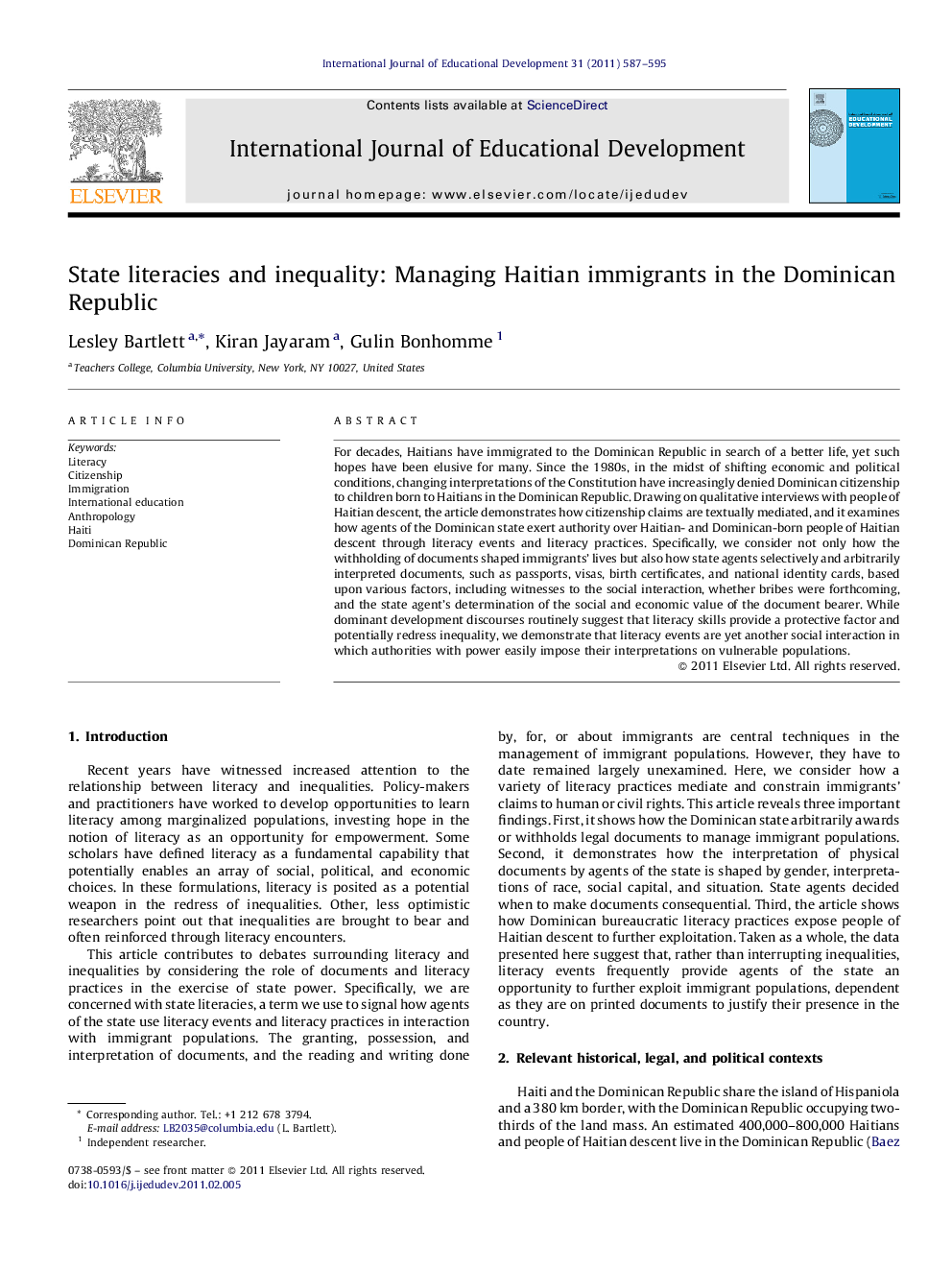| Article ID | Journal | Published Year | Pages | File Type |
|---|---|---|---|---|
| 356363 | International Journal of Educational Development | 2011 | 9 Pages |
For decades, Haitians have immigrated to the Dominican Republic in search of a better life, yet such hopes have been elusive for many. Since the 1980s, in the midst of shifting economic and political conditions, changing interpretations of the Constitution have increasingly denied Dominican citizenship to children born to Haitians in the Dominican Republic. Drawing on qualitative interviews with people of Haitian descent, the article demonstrates how citizenship claims are textually mediated, and it examines how agents of the Dominican state exert authority over Haitian- and Dominican-born people of Haitian descent through literacy events and literacy practices. Specifically, we consider not only how the withholding of documents shaped immigrants’ lives but also how state agents selectively and arbitrarily interpreted documents, such as passports, visas, birth certificates, and national identity cards, based upon various factors, including witnesses to the social interaction, whether bribes were forthcoming, and the state agent's determination of the social and economic value of the document bearer. While dominant development discourses routinely suggest that literacy skills provide a protective factor and potentially redress inequality, we demonstrate that literacy events are yet another social interaction in which authorities with power easily impose their interpretations on vulnerable populations.
Research highlights► Development discourses suggest that literacy skills protect vulnerable populations. ► But with ethnographic research this article demonstrates the textual mediation of citizenship claims. ► State officials influence immigrants lives by withholding documents and selectively interpreting them. ► The study shows that literacy events provide opportunities for exploitation.
